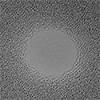SMU and the University of Rhode Island have patented an inexpensive, easy-to-use method to create solid-state nanopores (SSNs), while also making it possible to self-clean blocked nanopores.
The technique called chemically-tuned controlled dielectric breakdown (CT-CDB) addresses two key problems that have kept solid-state nanopores – which are too tiny for the human eye to see – from being used more often to build biosensors that can measure biological and chemical reactions of a given sample.
Biosensors have widespread medical applications, enabling rapid, early and effective disease diagnosis and monitoring.









Leave a reply